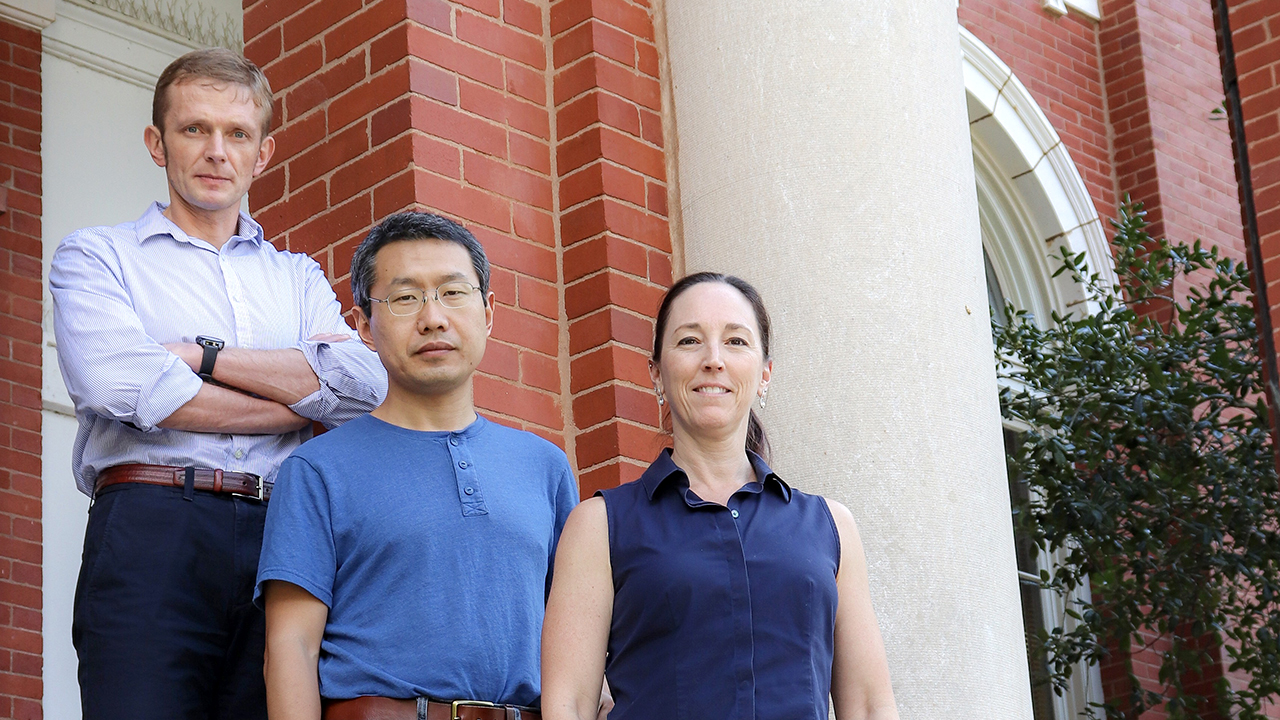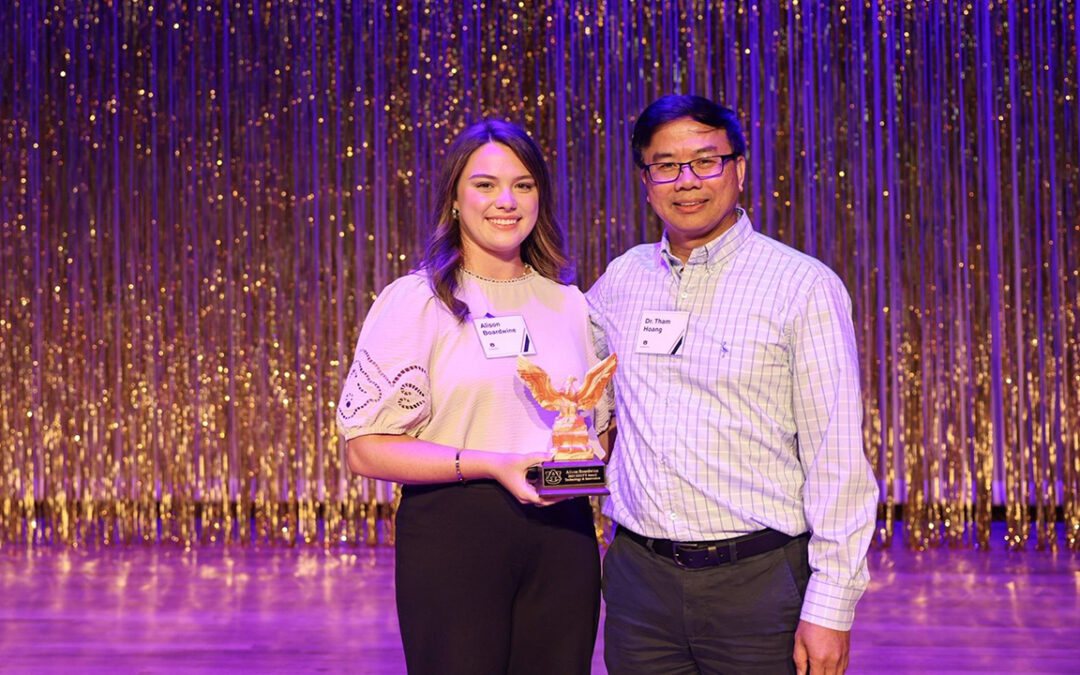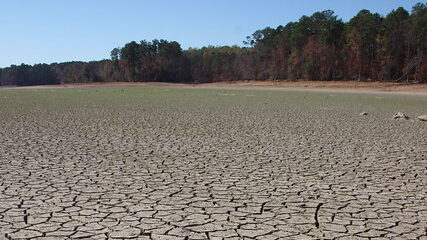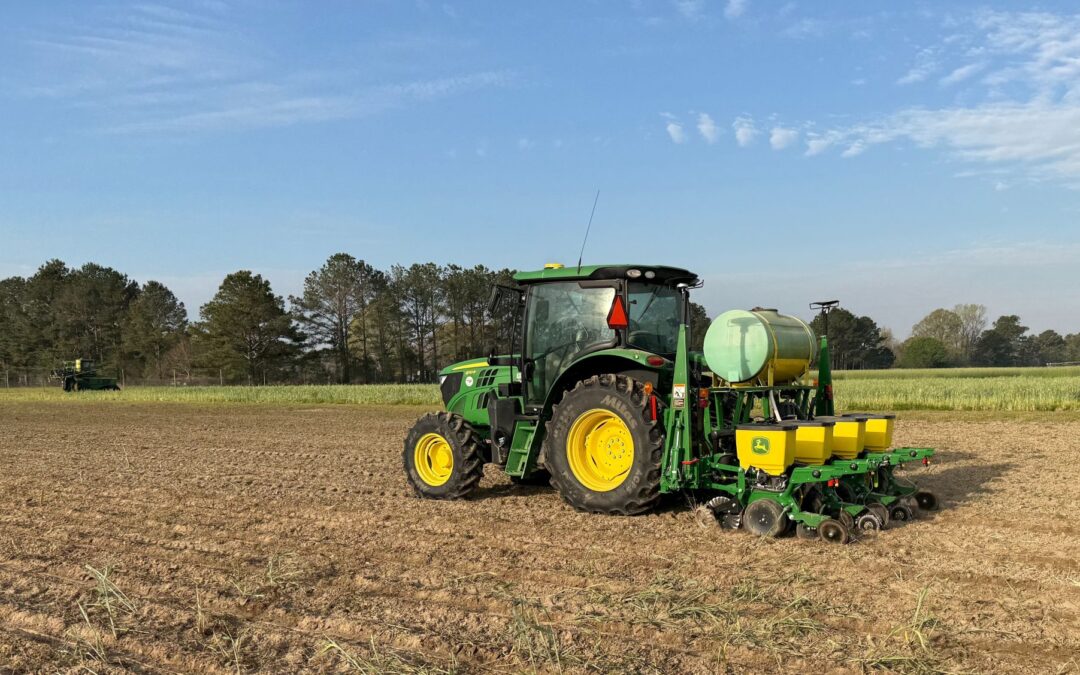By Paul Hollis
Grants from the National Science Foundation are some of the most prestigious and competitive researchers can receive, with only one out of every five proposals ultimately being approved for an award.
So for one department in Auburn University’s College of Agriculture to have three researchers to be part of teams approved for three separate NSF projects at roughly the same time is uncommon, to say the least.
“NSF grants are elite,” says Joshua Duke, chair and professor for Auburn’s Department of Agricultural Economics and Rural Sociology. “These particular projects are integrated grants, involving scientists creating innovations but also involving the economists and rural sociologists discovering how these innovations actually affect people.”
While some NSF grants are disciplinary, focusing on one area, integrated grants bring together researchers from different fields to work together on a common problem.
“Some of the best research occurs when social scientists can connect the innovations of science to how peoples’ well-being improves and the productivity of our natural resource base,” Duke said. “In the past, it wasn’t common for these integrated studies to occur, but they have been accelerating in recent years.”
Social scientists have two roles in integrated science research projects, he said.
“The first role is understanding how humans interact with natural resources—how the decisions we make affect agricultural production and natural resources,” Duke said. “This can help scientists to model natural processes.”
At the same time, economists and rural sociologists also can help understand the impact of these scientific changes, he said.
“For instance, if there is an improvement in water-use efficiency in agriculture, it can trigger changes in market prices for commodities. I like to think we’ll be able to contribute in the beginning and in the end of a scientific research project. “We can advance the science and often have the greatest impact in doing so.”
One of the NSF grant participants is Ruiqing Miao, assistant professor in the Department of Agricultural Economics and Rural Sociology. His project addresses an important research challenge: how to balance food-energy-clean water production, both spatially and temporally, with limited resources and a changing environment.
“To meet the growing demands of human population that is expected to reach 9.6 billion by 2050, the global and regional capability in providing abundant and affordable food, energy and water will be increasingly important to social stability and economic development,” Miao said.
The $500,000 project’s focus is on the Mississippi River Basin in the U.S. because it is the largest river basin in North America, draining about 41 percent of the contiguous U.S. and most of the U.S. Corn Belt.
“Research outcomes from this project will shed light on optimizing resource use efficiencies and predicting food, energy and clean water sustainability in the context of multiple-factor global changes including climate change, air pollution, urbanization, land and water use changes and social-economic development,” Miao said.
This project will foster science communication and stakeholder engagement for critical issues through summer school programs, workshops and conferences and universities’ broad strategy of external engagement. It also will assist policymakers in making informed decisions regarding future policies that will enhance the quality and quantity of food, energy and clean water.
“As an economist on the team, my role is to develop an economic optimization model to evaluate the economic tradeoffs between resource inputs and product returns, targeted at optimizing food-energy-water provision in sub-basins and the entire Mississippi River Basin as a whole,” Miao said.
Other members of the research team from Auburn University include principal investigator Hanqin Tian and Susan Pan, both of the School of Forestry and Wildlife Sciences. Chaoqun Lu, a quantitative ecosystem ecologist at Iowa State University, also is team member.
Another professor in the Department Agricultural Economics and Rural Sociology—Denis Nadolnyak—is working on an NSF grant that will study whether more irrigation-fed farms in the Deep South could lead to a more robust agriculture industry, possibly becoming an even greater economic engine.
Irrigation-fed farming is not as commonplace in the humid and wet Deep South, particularly in Alabama, as in the rest of the country. The 17 states in the Western United States, for instance, make up three-quarters of all irrigated farmed acres, and, in California, nearly half of all farmland is irrigated, according to the latest federal data.
In contrast, only about 4% of farmland is irrigated in Alabama, while it is the fourth wettest state in the nation.
The four-year, $1.75 million NSF grant will allow researchers to examine how a transition from rain-fed farming to irrigation-fed farming could impact harvests and water use, providing crucial data to policymakers considering initiatives to encourage irrigation.
The study will look at the Mobile River Basin, the 44,600 square miles that drain into Mobile Bay that includes central Alabama and portions of eastern Mississippi and northwest Georgia. The research team will examine how the linked resources of food, water and energy within the basin would be impacted through a transition to irrigation farming.
Through computer modeling, the team will study how various levels of irrigation, from continuing the current course to a significant shift to irrigation, will affect agriculture productivity, energy production, water supply and waterway navigation. Researchers also will work with 60 farmers within the basin to evaluate their openness to transitioning.
“My role as an economist on the research team is to analyze the economic benefits and costs of adopting irrigation-fed agriculture in Alabama and in the Southeast, particularly the benefits and costs that accrue to the producers and rural communities,” Nadolnyak said.
Leading the research is Hamid Moradkhani, the Alton N. Scott Endowed Professor of Engineering and director of the University of Alabama’s Center for Complex Hydrosystems Research.
In yet another NSF project, professor and rural sociologist Michele Worosz is part of an interdisciplinary team of researchers from Auburn University that received a $3 million Research Traineeship (NRT) grant to train the next generation of scientists and leaders to conduct cutting-edge interdisciplinary and applied research, develop effective communication skills, and prepare them for the workforce.
This grant is the first NRT award for Auburn and the first in the state of Alabama that will train students to make a sustainable, lasting impact increasing the climate resiliency in the Southeastern United States,
“Many times stakeholders have difficulty using specific climate models, whereas climate scientists may have difficulty understanding why their models are not being used,” Worosz said. “These students will be trained in climate research, science communication and multidisciplinary collaboration, all of which will help them work with diverse audiences in the co-development of resilience strategies.”
Worosz will be serving three roles in this nearly $3 million grant. First, she will direct sociological research on climate resilience in agri-food systems focusing on food safety, small-scale production and local foods. Second, her course—RSOC 6650 Sociology of Natural Resources and the Environment–which focuses on media framing of climate change politics and science, will be offered to trainees as part of the curriculum. Third, she will supervise trainees in rural sociology and serve on thesis and dissertation committees for other trainees.
Nine faculty and senior administration will work with approximately 85 graduate students including 18 fully-funded trainees.
Leading the NSF Research Traineeship is Karen McNeal of Geosciences. Other College of Agriculture team members include Puneet Srivastara, professor of Biosystems Engineering and director of the Water Resources Center, and Di Tan, assistant professor of Crop, Soil and Environmental Sciences.





